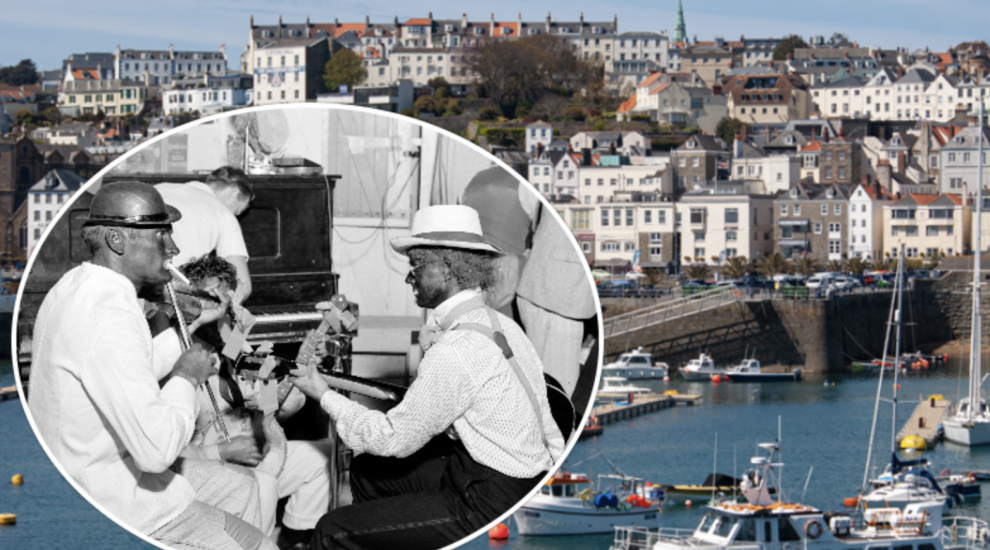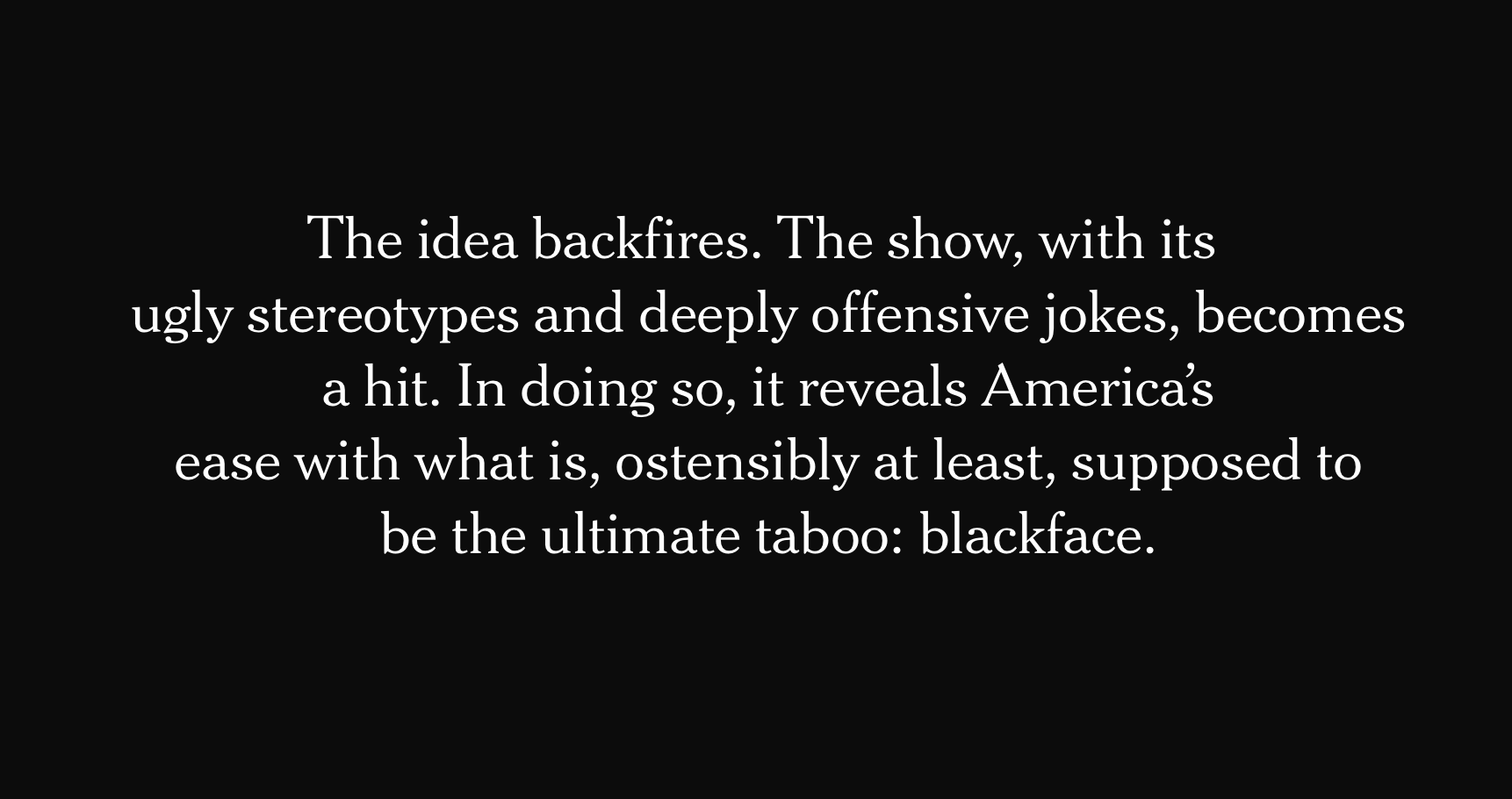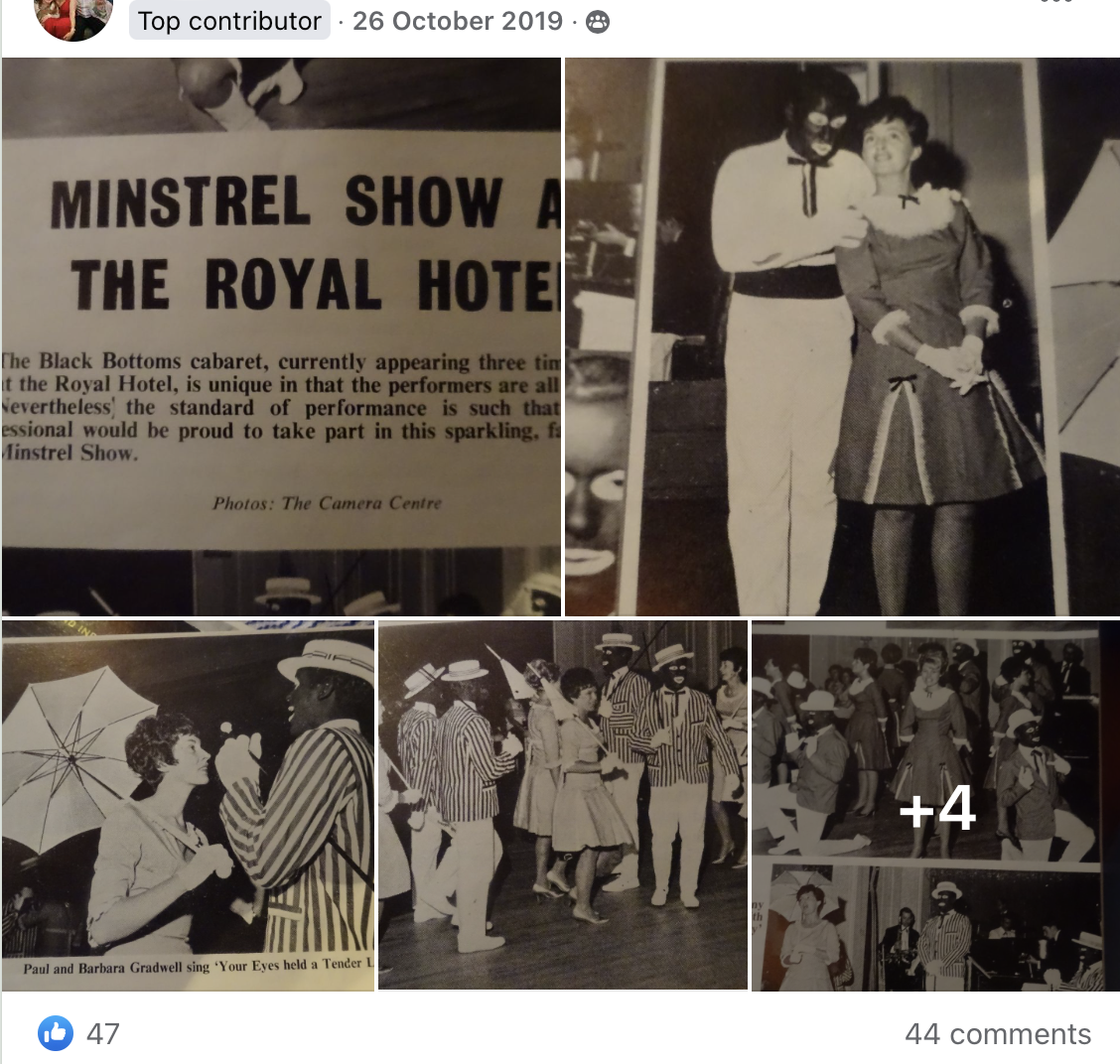


The question of whether blackface is acceptable if it's part of a fancy dress costume has sparked a fierce debate on the 'Guernsey People Have Your Say' Facebook forum, with hundreds of people saying it's racist while hundreds more have leapt to defend it.
The Harbour Carnival last Friday featured the annual 'Man Powered Flight' competition.
A group of people dressed as The A-Team entered, including one person who used brown face paint and a brown bodysuit to try and recreate the iconic Mr T character, B.A Baracus.
The other three characters - Hannibal, Face, and Murdoch - were depicted using printed masks.
One young man raised the issue of whether this was an appropriate fancy dress choice for a group of caucasian people, through a post on GPHYS.
That post received more than 600 comments within 48 hours. Within those 600 comments were a number debating what blackface is, whether it is racist and when it may be acceptable.
Blackface is described by Merriam Webster as "dark makeup worn to mimic the appearance of a Black person and especially to mock or ridicule Black people".
While there is no suggestion that the team at the centre of the blackface row from the Harbour Carnival had any intention of mocking or ridiculing anyone, any ignorance to that result "cannot be separated fully from the racial derision and stereotyping at its core", according to the renowned cultural body - the National Museum of African American History and Culture.
The NMAAHC is quite clear that regardless of any intent to be funny, the act of blackface is racist because of the historic connotations.
Blackface is closely linked with minstrel shows which date back to the early 19th century in New York.
Numerous online resources explain how these performances - starring white people - were inspired by enslaved black people.
A 'caricature' of the 'happy-go-lucky' slave with 'inherent musicality' or 'natural athleticism' grew to become seen as an American art form with films of the early 20th century routinely featuring white actors in blackface, as opposed to black actors themselves.
During the early 1900s, Ernest Hogan - the first African-American entertainer to produce and star in a Broadway show (Wikipedia) - was among those performers who started their careers by "painting their faces Black to transform into the White idea of bumbling, stumbling, comedic, rural caricatures" (Daily Jstor).
These early instances of black performers reflecting white views of their lifestyles and characters are linked to later developments in Jazz, Blues, and Hip Hop, with some negative connotations pervading.
Civil rights activist W. E. B. Du Bois is quoted as stating that “A rising race must be aristocratic; the good cannot consort with the bad” while historian and Professor of American Studies James Dormon wrote of “blacks playing whites playing blacks” perpetuating stereotypes (Daily Jstor).
Other famed black performers noted for appearing in blackface during the very late 19th century and early 20th century were Bob Cole, and Billy Johnson.
The Library of Congress details how "discrimination against African Americans in the nineteenth century manifested itself in the minstrel show" with "songs, dances and comic skits that poked fun at the Black people as naïve and was performed by white male actors in black face or, more commonly in the post-Civil War period, Black male actors in black face".
LOC also details how "songs about emancipation allowed African American artists to express positive views about African Americans on the minstrel show stage. While often using language that would be considered unacceptable today, these songs nevertheless allowed African American performers to stand before white audiences and sing of the joy of freedom".
While black performers adopted blackface to enable them to perform before white audiences, the most commonly practiced form of blackface would see caucasian performers using make up to caricature African-Americans and other races.
Wikipedia states that a 1915 film called The Birth of a Nation, had white men in blackface as all of the main African American characters. It was decried as racist and is credited with being the last major title to have employed blackface in that way although it did continue under the guise of comedy for many more decades.
White people also continued to regularly portray Native Americans, Asians, Arabs, and others for several more decades including infamously in Breakfast at Tiffany's (1961) starring Mickey Rooney Lawrence of Arabia (1962) starring Alec Guinness.
In 2000, Spike Lee's 'Bamboozled' shows an African-American TV writer proposing a minstrel show as an act of protest, but it became a hit.
The NY Times said this shows "America's ease" with the "ultimate taboo".

Pictured: The NY Times review of Spike Lee's Bamboozled.
British culture has even more recent examples of blackface at the centre of entertainment hits. The Matt Lucas and David Walliams double act brought us Little Britain and Come Fly With Me starring a slew of now-maligned caricatures including Desiree de Vere, Ashraf the Horse Whisperer, and Precious.
Britain's Ant and Dec were criticised for appearing as Japanese school girls in their light entertainment show Saturday Night Takeaway.
A Lenny Henry and Rowan Atkinson sketch from 2003 showed the latter with brown makeup as Martin Bashir interviewing the former with white makeup as Michael Jackson.
There are numerous examples of people issuing apologies after being called out for blackface.
Walliams and Lucas have both apologised for their use of blackface in the shows named above, while American presenter Jimmy Kimmel has apologised for his past attempts to spoof black celebrities.
Photos of Canadian Prime Minister Justin Trudeau in blackface were published in 2019. They had been taken at an Arabian Nights themed party in 2001.
A British law-firm partner issued an apology after a photograph of him dressed as Mr T was shared online, six years after the incident.
The advocate had dressed as the TV icon for a firm party in 2016. In September last year his employer issued a statement saying he had apologised and "deeply regretted" any offence caused and said it was an "error of judgement".
The man's employer also said it had "redoubled" its efforts to ensure its firm values of diversity and inclusion embedded.
The A-Team character was at the centre of the blackface debate in Guernsey following Friday's Harbour Carnival, but it is not the first time blackface has been used as an entertainment tool in the island.
A quick search on the Guernsey Days Gone By page on Facebook showed that The Royal Hotel had hosted a minstrel show called the Black Bottoms which starred local performers.
The Wayside Cheer and St George's Hall also hosted minstrel shows.

Pictured: A 2019 Facebook post recalled times when minstrel shows were performed in Guernsey.
The organisers of the Harbour Carnival have issued a statement to Express today saying "there was absolutely no racist intent whatsoever and I don't believe that anyone could really think that it was anything other than a good natured representation for an event that raises a great deal of money for good causes.
"The lady depicted a fictional tv character (that isn't a racist character) rather than a general racial slur. As far as we are concerned her team had just as good a theme as the minions who actually won the best dressed team in the end.
"We don't have any particular criteria for fancy dress for any of the team events, we expect that the entrants would use their judgment just as they would on a night out or a fancy dress party."
A spokesperson for Guernsey Police confirmed no complaints have been made about the Harbour Carnival A-Team entrants.
"At this time we’ve not had any complaint regarding this matter."
Express has reached out to the business which dressed as The A-Team but they have not responded as yet.
Comments
Comments on this story express the views of the commentator only, not Bailiwick Publishing. We are unable to guarantee the accuracy of any of those comments.